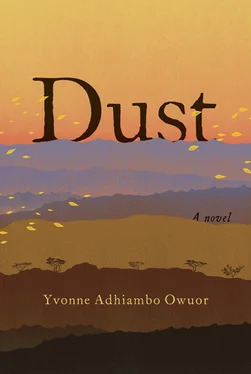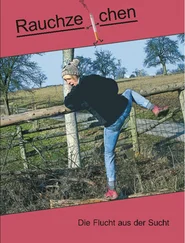Static.
He nodded at Nyipir, wrote notes — one of the few humans left in the world who give time to cursive writing. His output was like a medieval text. Shame about the Kasuku writing pad he had to use.
Thus he listed Nyipir’s losses:
Missing items.
Two bulls. One red dance-ox. (Name, Jayadha)
Twenty camels, one named Ubah, the other Kormamaddo.
A hundred and eighty-two cows.(☺) Two herding dogs (names, Simba and Nyarnam). Forty-three sheep. (☺) Sixty nameless goats.
About two tons drought grass (burned).
Missing person Akai Lokorijom (wife)
Injuries, Raro Galgalu (like my son)
Recommendation: Officer Ali Dida Hada returns to lead retrieval efforts and use previous knowledge to address rustling menace.
That last sentence caused Aaron to gurgle in happiness. “Now, sir, your signature on the abstract!” he warbled to Nyipir.
Nyipir’s breath caught.
His head throbbed.
He relented. He struggled to sign his name; his thumb was stiff. “What’ll you do with this?” he asked when he had finished.
Aaron said, “We shall now communicate with Nairobi.”
It has been two hours. The two men sit in silence while a radio wheezes static. Nyipir is clutching his head. The strain showing on his fingers.
“Maybe you should go to Omoroto?” Aaron offers for the seventh time.
Nyipir asks again, “Why?”
Aaron leans forward. “They take stolen livestock there.”
The Northern Frontier Stock Exchange . Nyipir grimaces. He was one of the first to transfer rustled livestock through Omoroto more than fifteen years ago. There would certainly be a new holding area now. Rustlers were always five years ahead of the state’s security apparatus.
To Aaron, “Is that so?”
Aaron nods his head like an agama lizard. “Now I shall radio ASTU. But you, you go on ahead.” Aaron pulls out a large black-and-white map. He stretches it out and points at Fort Banya.
“Here!” His finger taps a black squiggle on the map.
About a fortnight’s walk away.
Nyipir watches Aaron as the uniformed creature taps a ballpoint pen against his teeth, repeating, “Fort Banya, Fort Banya.” Nyipir had not realized that such men existed and, more significantly, could be integral to any nation’s security system.
“Hire herdsmen,” Aaron suggests.
Nyipir’s sigh-laden voice, “My animals’ tracks go right past your rear window.”
“What?” Aaron jumps up and lurches to the hole in the wall — his window. He discerns the tracks, wrings his hands. “What do we do now?” Aaron collapses into his seat. “ Aiee! Is it the rainy season already?” he whispers.
Aaron had already experienced three rainy seasons. In two of them, a parade of raiders, rustlers, and other frightening elements strolled through his outpost, not even bothering to load their magazine clips, leading stolen livestock away. When Aaron heard the stomping of livestock, the bleating of goats, the braying of donkeys, he would ease back the cardboard and newspapers scattered on the floor, take his government-issue gun and a soft bog coat, open the trapdoor in the floor, lower himself into the bunker, shut the trapdoor, and light one of the lanterns down there.
There was also water stored in a large plastic tank, a sack of doum nuts, extra paraffin, two other hurricane lamps, two buckets, the Holy Bible, the Holy Quran, and three Elizabeth Browning anthologies — Aaron’s contribution to the pile. Forty-eight hours later, he would poke his head out. If there was silence, he might pull the rest of his body out. When the old white van used to work, he would drive to the shopping center, a one-and-a-half-day trip away, and hire a room from where to prepare his field report, which confirmed that he had neither seen nor heard anything out of the norm. A year and six months ago, when he was just three months in the post, a reportedly dead six-foot-seven rustler from Suguta, with a bandolier and a Remington 870 pump-action shotgun, had barged into Aaron’s office, where Aaron’s shoeless feet were propped on the desk as he reread a Standard newspaper from one month earlier.
The giant at once spotted Aaron’s AK-47 leaning against his desk.
He had simply pointed to it.
In his haste to give up his gun, Aaron dislodged something. Bullets ricocheted off the tin roof and Aaron dropped the gun and became a blob of jelly trying to raise its hands into the air while also attempting to stand on the tips of his toes to underline his total surrender.
The giant took the gun from the floor. He also smiled at Aaron, revealing pink gums where his two lower teeth were missing. He sat on the table, clipping and unclipping cartridges.
He complained about the weather— Jua kali!
“Tutaonana,” he grunted to Aaron on his way out, we’ll meet again.
Never , Aaron had vowed.
Forty-eight hours later, when he could at last speak, Aaron radioed a report to headquarters. He emphasized that he had barely escaped alive from the raid. Which was true. In the hours spent under the table, hearing the man clip and unclip cartridges, Aaron had known that fear is a cause of death. He was hoping for compassionate leave. To his sorrow, two weeks later, Aaron was made acting district security officer, with a reputation for dealing effectively with belligerent nomads.
Five months later, the new regional commandant of the Anti-Stock Theft Police had asked for his help. Tough and experienced reinforcements were needed.
Aaron had said, “Ndio, afande! At once, afande.” He had smartly set off in the opposite direction, the pursuit of peace his primary objective. In this he was most successful.
Outside, the wind stirred scant shrubs, and then it barked in the lowest note of a contrabassoon.
“What do we do now?” Aaron asks, his eyes white and wide.
Nyipir’s hands now prop up his chin. Head angled, eyes asquint, he sees sweat soak Aaron’s clothes. Who had said a person was best known by the questions he asked? Watching Aaron, his bewildered humanity, his open surrender to fear, something within Nyipir at last relinquishes his wars.
Numbness creeps in.
When he can disentangle himself from Aaron’s wind-haunted isolation, Nyipir leaves, hobbling homeward by way of night. He rests during the broiling day to return to his journey at sundown. Ten kilometers from Wuoth Ogik , Nyipir suddenly stops. He turns toward the stumpy summits he has not glanced at in more than forty years. Those silence-storing red caves with an underground stream bubbling lyrics of ill-kept secrets. Memory peers through distant thick scrub, bushes, and fallen rocks that hide a portal.
Walking again.
When he pushes open Wuoth Ogik ’s gates and sees the rusting iron cowbell that belongs to his red dance-ox, it had fallen off during the raid, instead of lifting it from the dust, he lies down next to it, his body shivering in a nameless fever.
IN THE CENTER OF NAIROBI, A FLOWER MAN LUGS A GIANT bunch of carnations, marigold, roses, tiger lilies, tuberoses, orange roses, yellow roses, and rosemary across the street. Somewhere outside, a husky-voiced evangelist with a faux-American accent is peddling eternal life, threat, and “Jeeheeezuz.”
A visiting stranger turns from ogling unfiltered Nairobi existences though a restaurant window to browse through a newspaper filled with post-election violence, hand wringing, and nonaction. He flips through the obituary pages on his way to the sports section. He freezes. A photo. It is a man whose broken smile on full lips belies his urgent gaze. Compelling. Sculpted features, a beautiful man. He reads:
Moses Ebewesit Odidi Oganda of Kalacha Goda. 1964–2007. Cherished son of Nyipir and Akai, only beloved brother of Arabel Ajany. Lover of water, rugby, and Kenya. Father-to-be. So deeply missed. So terribly longed for.
Читать дальше











